Shell shocked
Fighting war against an unseen enemy has taken its toll on Pakistanis – we don’t know who to blame and who to...
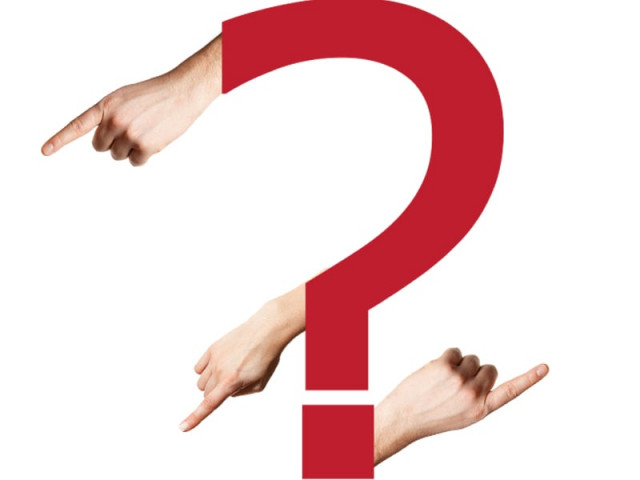
Shell shocked
With his rage overpowering his grief, the brother of the slain man begins to scream and curse the Taliban. “It’s because of the Taliban that my brother was killed, I’ll shave off their beards and sleep with their wives in the same madrassas they used to train these bombers!” Inconsolable, he continues to shout – until three heavily bearded men appear at the scene.
“Take the boy inside,” says the father, “he’s not in his senses.” As the three men, elders from the local mosque, begin to seat themselves, one of them begins to speak to the gathered crowd of mourners.
“Do you think that any Muslim would kill so many of his brothers?”
The collective response is immediate. “No,” say the assembled mourners. “No Muslim could do such a thing.”
Encouraged by the response, the cleric continues: “Nor can a suicide bomber cause so much destruction.” As he continues, his voice rises and his eyes bulge. “It was the Americans,” he concludes. “This was a drone attack!”
His audience is more than willing to believe this version of events rather than the more unpalatable truth.
“This was an American training facility (that was targeted). After Osama’s death the Americans were told to withdraw, and so they fired missiles from their drones to kill the same people who had served them. They are no one’s friends!” says the elder.
As if through a toxic alchemy, his words transform the atmosphere. Rage begins to replace sorrow; this rage is not directed at the Taliban, but the Americans. The murmur of ‘drone attack’ begins to rise in volume as the crowd finds an explanation for the carnage that they can digest more easily. At this point, anyone who tells them they are wrong will be dubbed an ‘American agent’ and an ‘infidel’.
Ironically, at the same time the Taliban spokesperson was calling up reporters to claim responsibility for the Shabqadar attack, but that claim simply fell on deaf ears, not only at this particular funeral procession but seemingly across the rural areas of Khyber-Pakhtunkhwa and far beyond.
Denial like this ran deep even before the May 2nd operation that resulted in Osama bin Laden’s death, but the covert operation in Abbotabad seems to have deepened the syndrome. For many, patriotism and anti-Americanism is now one and the same thing.
The car bombing that claimed several lives at the CID police station on Peshawar’s Jamrud road was no different. After the suicide attack, there were many calls made to reporters from their relatives, contacts and members of the public who claimed that it was a drone attack. There were six people who were even ready to testify on the Holy Quran that they saw three drones from their rooftops.
Covering the blast, I was approached by an angry young man named Usman, a resident of the area.
“I saw three planes, the one that fired the missile was followed by two other planes as if they were giving it protocol!” he said.
As I looked at him, speechless, he continued: “Why don’t you people report the truth?”
Not far from where I stood the remains of the vehicle used in the attack lay in twisted chunks of blackened metal, the engine and chassis number still visible. It seems that some journalists even succumbed to this collective insanity, with local newspapers running reports that called it a drone strike and not a car bombing.
“It is distrust and disinformation that has led us to this point,” says Dr Khalid Mufti, a leading psychiatrist who has treated a number of patients from the war-torn tribal areas. “But I think we need someone to bridge the gap (between denial and reality), and I believe that will happen soon as public awareness is rising rapidly.”
But despite his optimism, I find it hard to believe that the gap will close anytime soon. Society is already distrustful of politicians, bureaucrats and the police. Now even the once-sacrosanct military is viewed with suspicion. Never were the lines between fantasy and reality as blurred as they are today. Numbed, traumatised and brutalised, the people of Pakistan don’t know who to blame, and who to believe.
Published in The Express Tribune, Sunday Magazine, July 24th, 2011.

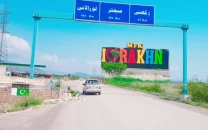
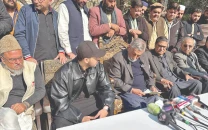
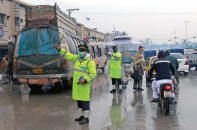

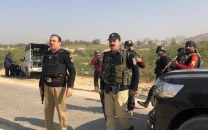
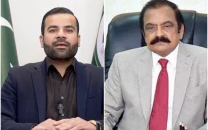












COMMENTS
Comments are moderated and generally will be posted if they are on-topic and not abusive.
For more information, please see our Comments FAQ